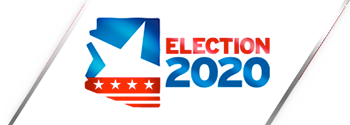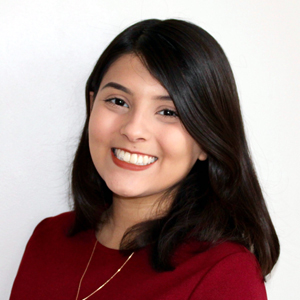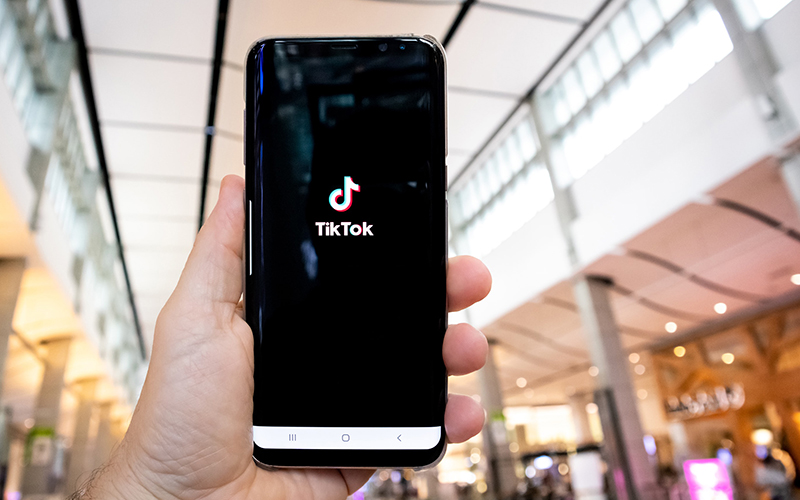WASHINGTON – Phoenix resident Rye Taylor started using TikTok as a hobby when it debuted in the U.S. in 2018, then started pushing her message of body positivity once she grasped the app’s impact on her audience.
And then came the heated 2020 elections.
With more than 47,000 followers, Taylor said she discovered she could use TikTok to give her political viewpoints a platform after realizing people are “voting for human rights at this point.”
“I feel like it’s important to let people know that they’re not the only ones who feel that way or want to vote the way that they vote,” said Taylor, whose user name is @himynameisrye.
She’s not the only one who has found the video-sharing platform an effective way to share her voice and the campaign messages of politicians she supports – all without the interference of political ads or the politicians themselves.
Alana Campbell, strategic growth and projects manager at Javelina Consulting, said TikTok allows users to connect in a way they haven’t been able to before, which is especially significant during a presidential campaign.
“Right now, the digital ad space is more crowded than it’s ever been and it’ll be more crowded tomorrow than it is today,” Campbell said. “You have the ‘For You’ section that is the default (in TikTok), and they are feeding you content that they think you will really like, that is political ad-free.”
While politicians themselves are barred from using the app, their supporters can use it to push politicians and political messages. And in Arizona they have.
TikTok users in the state have shared videos of support for candidates of both major parties, from support for Sen. Martha McSally, R-Ariz., to her Democratic challenger, Mark Kelly. With more than 2,000 followers, @mission4az produces content backing Kelly, while McSally shows up regularly on other TikTok accounts, including @rusticnative with 2,000 followers.
Nationally, political accounts include powerhouses like @thedemhypehouse, with more than 200,000 followers, and @conservativehypehouse, with more than 1.5 million.
It’s not just politicians that are featured – some use their accounts to give a platform to issues.
“I’m not voting for one person or another, I’m voting for somebody who believes in science and is going to protect nurses and health-care workers,” said Jarred V., an Arizona nurse who runs the TikTok account, @musclesandnursing.
Jarred – who asked that his last name not be used because his account could bring a backlash from his employer – said his goal in using TikTok is to “have systemic change in the healthcare system where no longer are nurses afraid of speaking out.”
“What I’m trying to focus people on is, ‘Who is actually wanting to make a change?'” he said.
The app, which launched in the United States in 2018, has never been part of an election season until this year. The app, whose primary function was to share dancing and lip-syncing videos, is now getting news and political information to potential voters.
That person-to-person outreach appears to work, said Paul Bentz, senior vice president of research and strategy for HighGround Inc. He said his children know more about the election than he did about elections when he was their age, which he attributed to the app.
“I think that will stick long term and might actually increase young voter turnout,” Bentz said. “If they can talk about themselves voting or showing the electoral issues through their perspective, it does two things at once for them. So, I think, long term, it could have big effects.”
But the future of the platform is unclear. The Commerce Department has said the Chinese-developed app presents a national security risk and has threatened to ban it unless its Chinese owners agree to sell it to U.S. buyers.
The latest deadline for a sale was Nov. 12, after which the Trump administration said TikTok could be prohibited in the U.S. – but a federal judge on Friday blocked the administration’s plan. And TikTok users doubt the government can ban use of an app that has already been downloaded on to millions of devices in this country.
For TikTok users like Taylor, getting information about issues and politics without the filters of advertisements and narrow-minded discussion has grown her love for the platform.
“I feel like people on TikTok are willing to listen to both sides,” she said. “It’s not just one side or the other, they’re willing to learn and educate versus just seeing someone and then judging them for how they think or how they’re voting.”
As young voters gear up to vote, Campbell said the world is changing with social media, and candidates need to find better ways to connect with their constituents that’s better than just “an ad on TV.”
Jarred agreed, which is why he believes TikTok is an important tool for voters to have on their phones.
“I listen better to my people than those people who are running the campaigns,” Jarred said. “I think you can have more of an impact with that.”
 Want more on the 2020 elections? Cronkite News, Arizona PBS and Indian Country Today have teamed up to bring you comprehensive election coverage. Click here for more.
Want more on the 2020 elections? Cronkite News, Arizona PBS and Indian Country Today have teamed up to bring you comprehensive election coverage. Click here for more.


